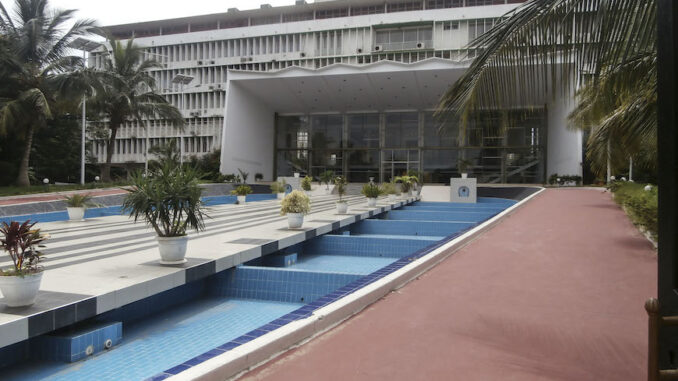
Senegal enjoys a diverse media landscape with a mix of public and private media outlets, and an active community of independent journalists. As the country prepares to go to the polls on 25 February 2024, ARTICLE 19 analyses efforts to address ‘false news’ and disinformation in the media environment.
ARTICLE 19 is increasingly concerned about fundamental freedoms being undermined in the country, in particular the right to freedom of expression, the right to protest and the right to access information. We have witnessed a growing trend in recent years of misusing a legal framework that is purportedly intended to address disinformation to chill the activities of scores of journalists, activists, human rights defenders, and political opponents. Law enforcement officials have regularly cited a legal and regulatory framework on ‘false news’ and disinformation to justify this repression.
In terms of legislative framework, ARTICLE 19 is gravely concerned about the impact that the current legislation criminalising disinformation (Article 255 of the Penal Code) has on freedom of expression in Senegal. These provisions of the Penal Code have been used in tandem with other criminal measures, including defamation and insult laws, to severely limit dissent. We also note with great alarm the government’s recent decision to implement internet shutdowns and restrict access to social media; against this backdrop, the legislation sets a bleak background for access to diverse information.
While there are some instances in which disinformation may have concerning implications for society, international law is clear that any efforts to address it must be in full compliance with human rights standards to which Senegal is bound under international law. These standards specifically require that any restrictions be defined in law, and be necessary and proportionate to achieve a legitimate aim. We note that concepts such as ‘false information’, ‘disinformation’, or ‘fake news’ are not terms that are defined under international law. Indeed, there is no universally-accepted definition for disinformation. Therefore, undefined terms are not, and cannot be, legitimate aims for justifying restrictions on the right to freedom of expression under Article 19(3) of the International Covenant on Civil and Political Rights (the ICCPR). Further, we note that flawed legal regulations can be counterproductive, in that they can impede and chill the work of independent media, thereby obstructing the flow of quality information.
In its most recent Universal Periodic Review, Senegal has already committed to the international community to address concerns regarding freedom of expression in the country, and to better protect journalists and media workers without fear of reprisal. We now urge that Senegal remain true to that commitment. Accordingly, we urge Senegalese lawmakers to repeal Article 255 of the Penal Code in order to promote free and effective access to information and robust public debate. In addition, we urge the government to instead address any fears of disinformation using a multi-stakeholder approach that involves civil society, international and regional mechanisms, industry, and most importantly, avoids imposing criminal sanctions. In doing so, Senegal’s response will be consistent with the international consensus that responses to disinformation must protect and promote freedom of expression.
ARTICLE 19’s key recommendations
The Senegal Government should:
- Repeal Article 255 of the Penal Code which criminalises the publication of ‘false news’. This phrase is undefined together with a multitude of vague provisions in the law, which does not pursue legitimate aims. As such these provisions fail to meet international standards. A broad consensus among the UN General Assembly, Special Procedures, and regional instruments has recently made clear that disinformation laws must comply with human rights law.
- Repeal all criminal defamation measures. Such measures are incompatible with international standards.
- Cease the targeting, imprisonment, and repression of journalists, activists, and human rights defenders merely for reporting on issues of public interest or criticising public officials or institutions.
- Convene a dialogue among stakeholders, including civil society, media, industry (including social media networks), and human rights instruments, to address disinformation without resorting to criminal sanctions.
- Engage in capacity-building efforts to train prosecutors, judges, and law enforcement in relevant international and regional human rights standards. Among other, this might include opening dialogues with the African Commission on Human and Peoples’ Rights, as well as incorporating resources from recent reports on disinformation by the Secretary General of the United Nations and the UN Special Rapporteur on freedom of expression.

Leave a Reply